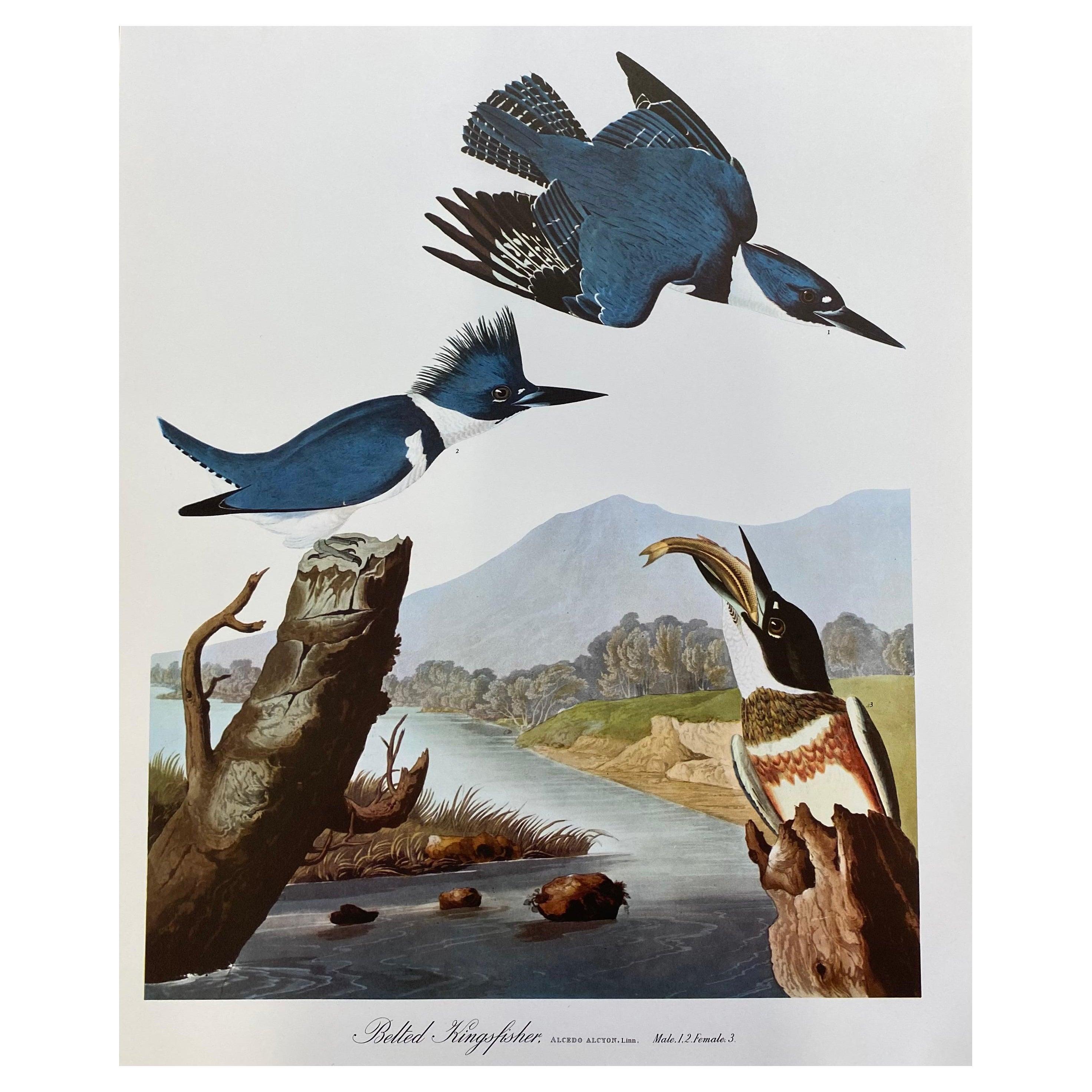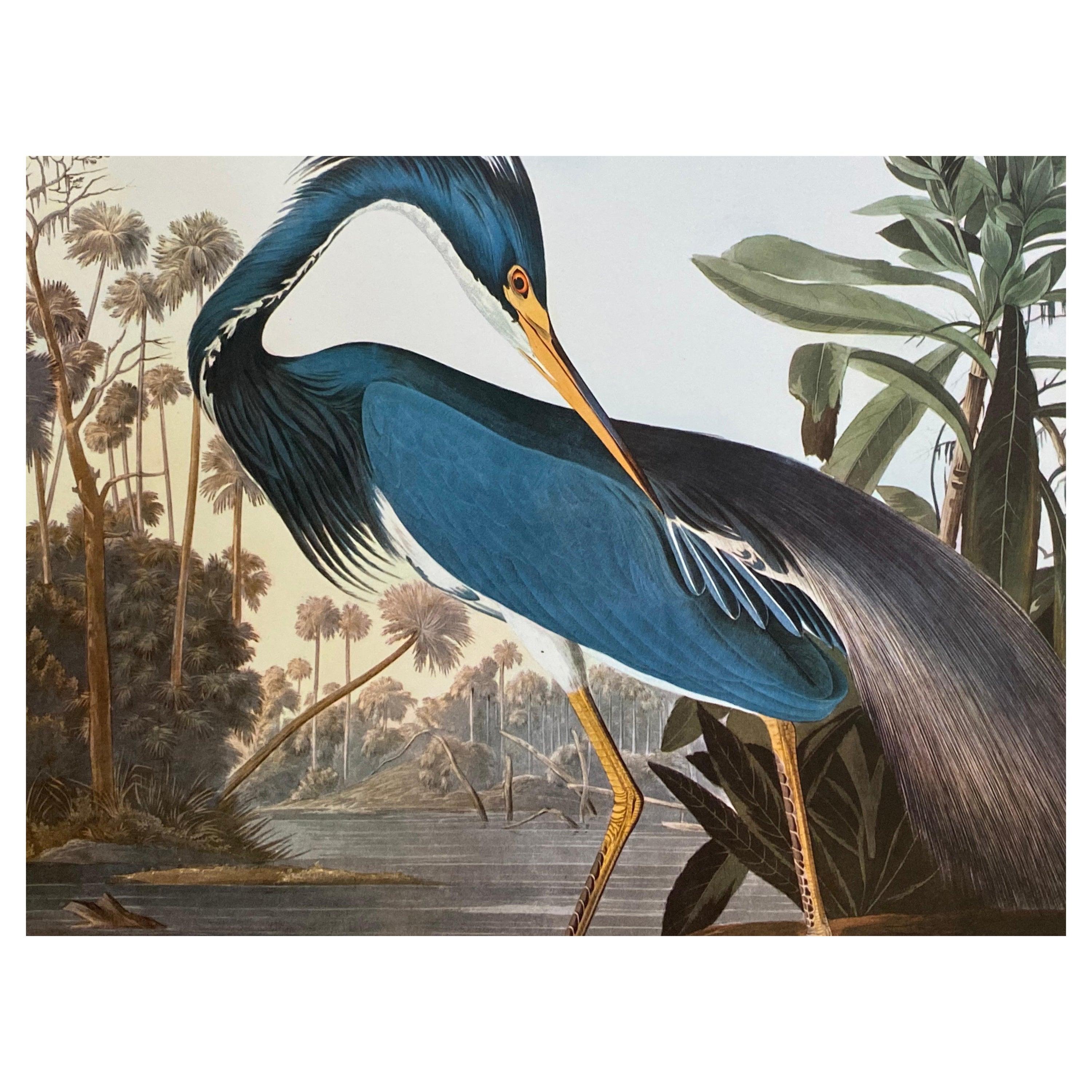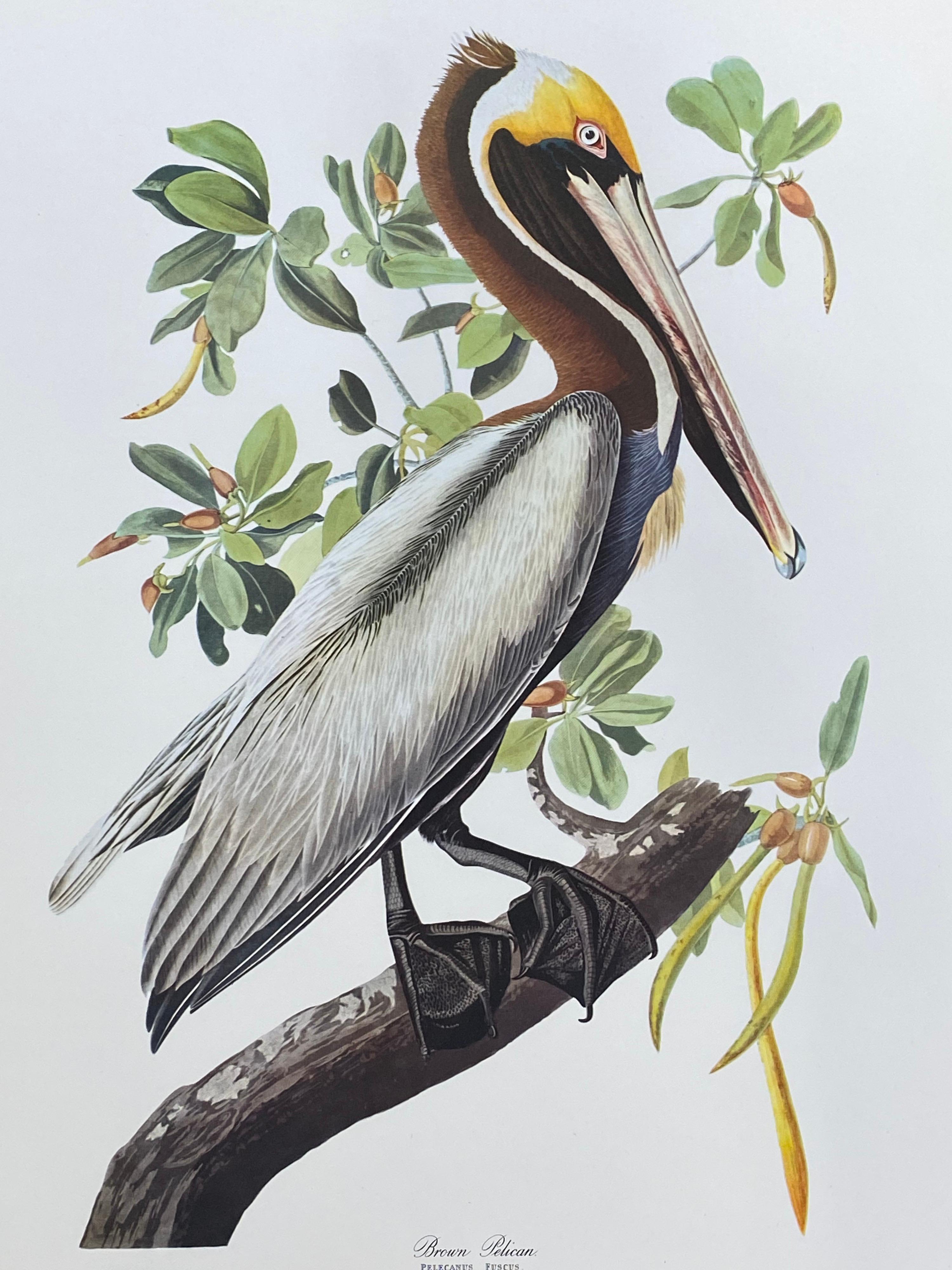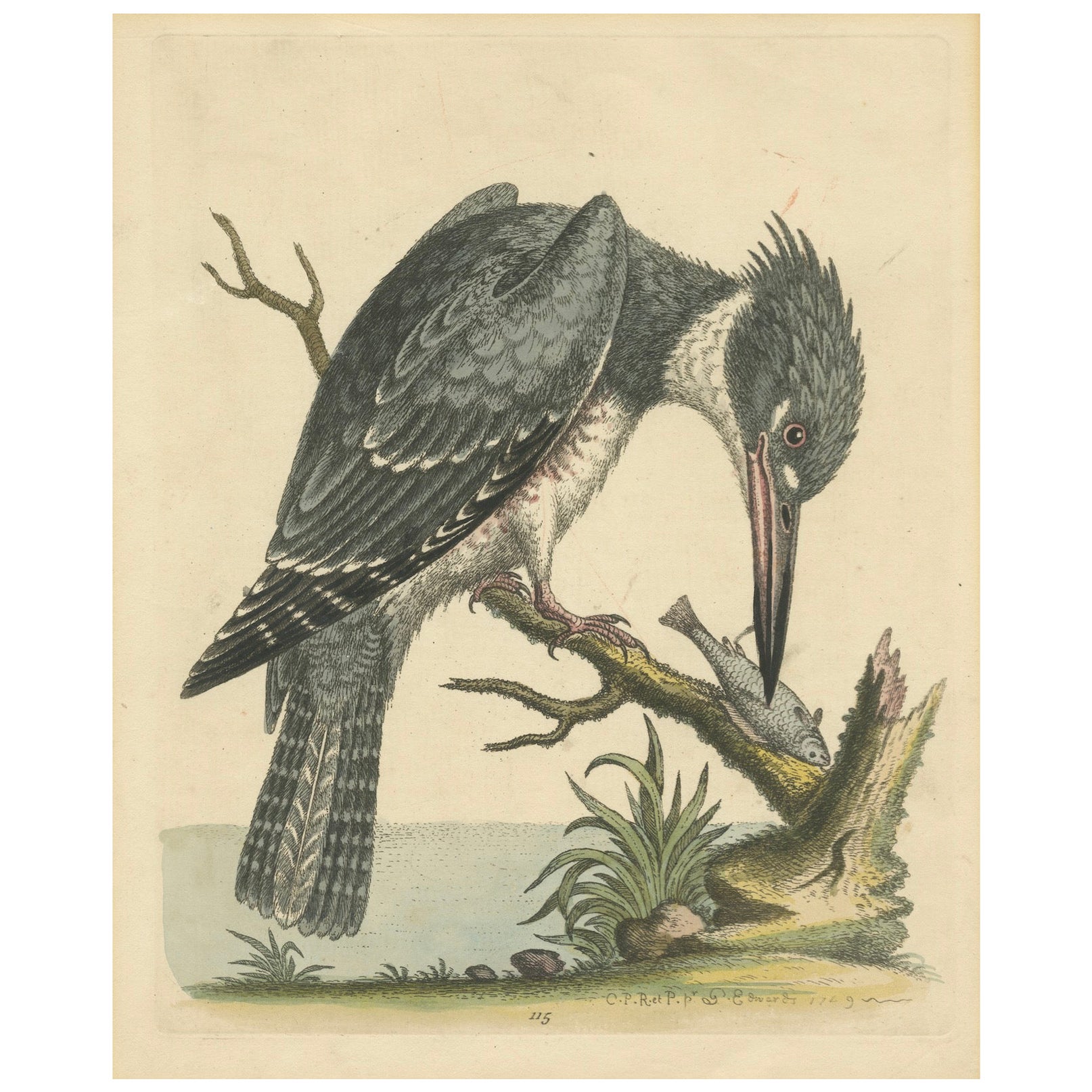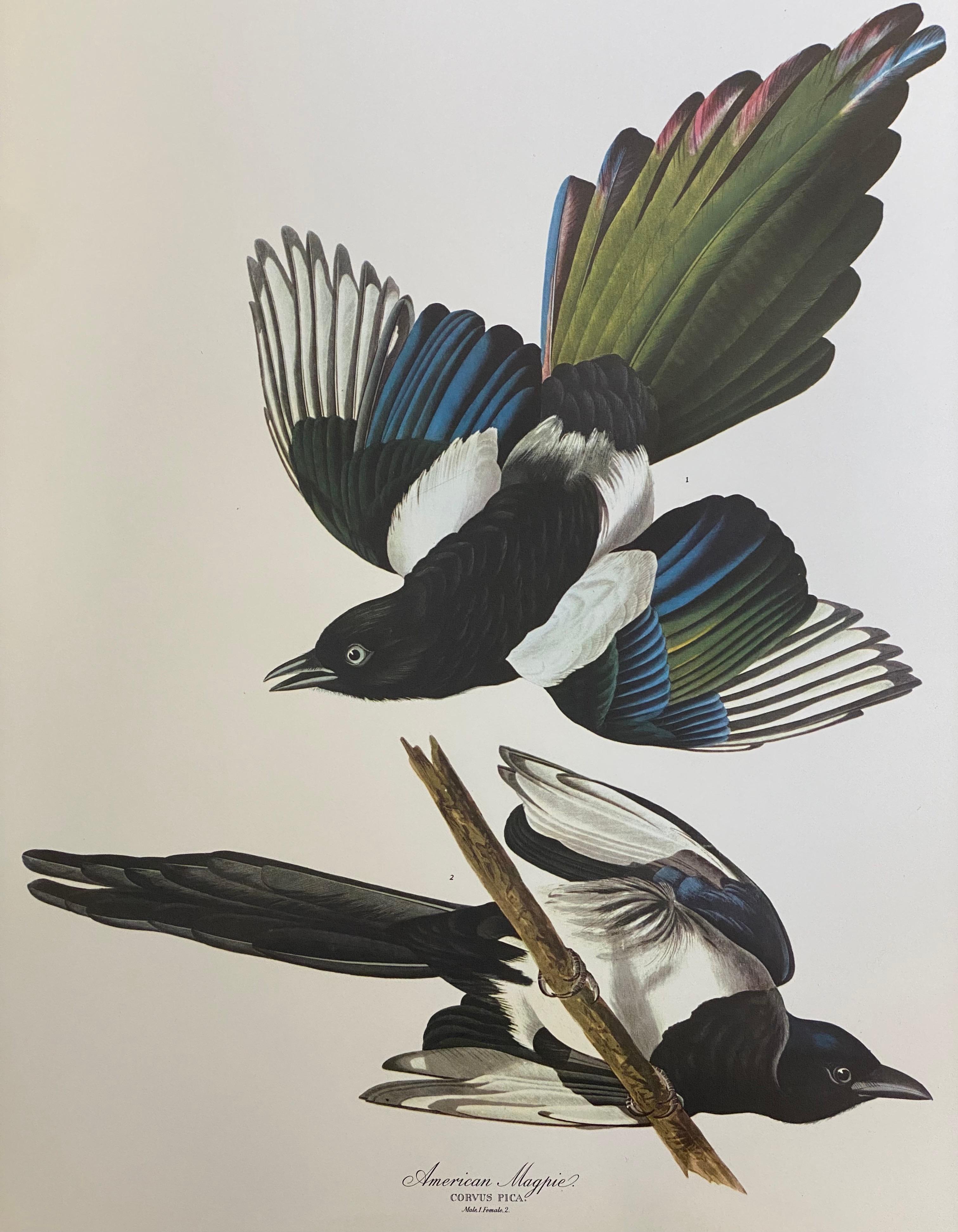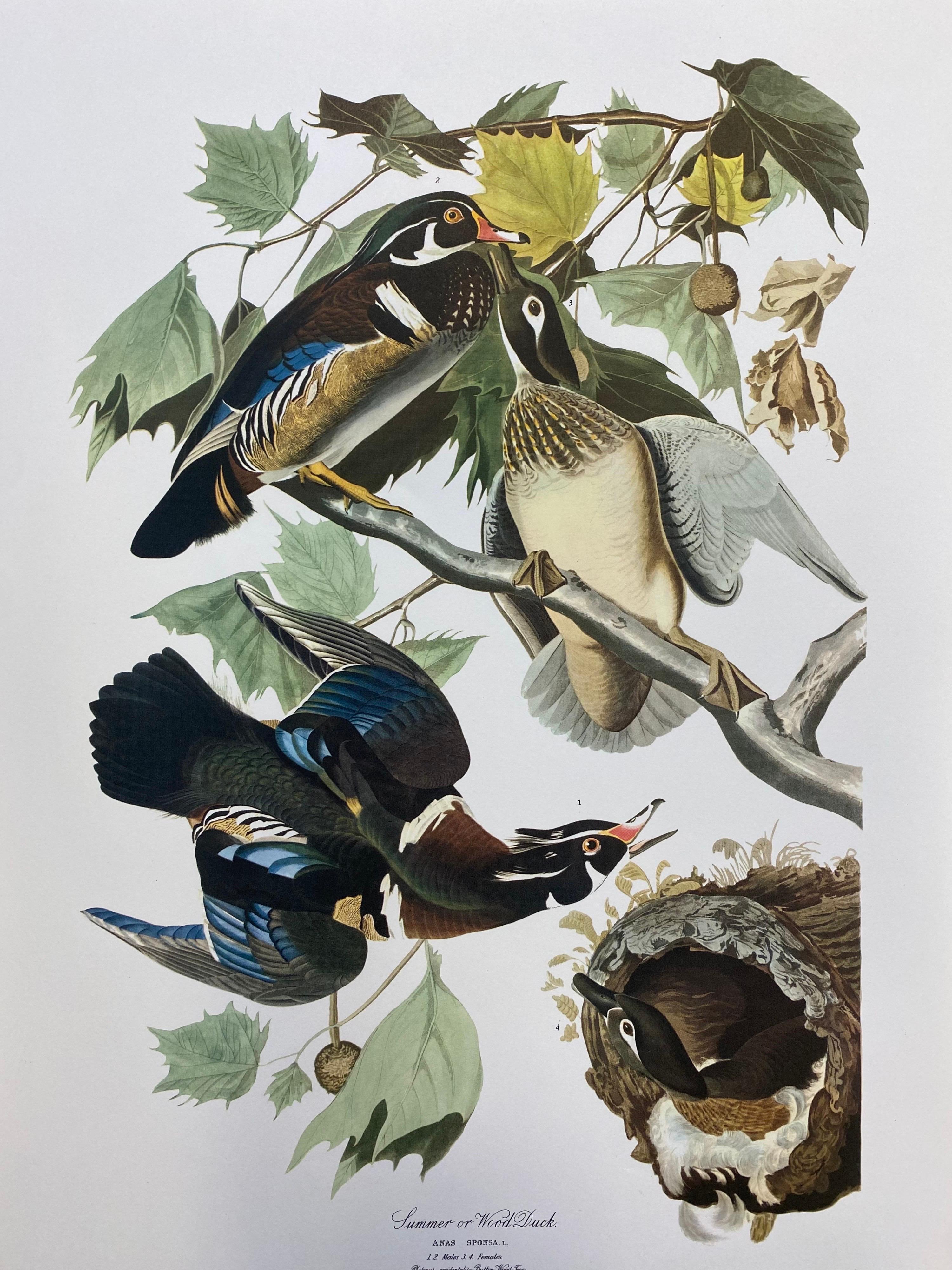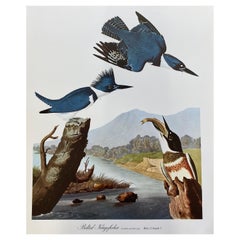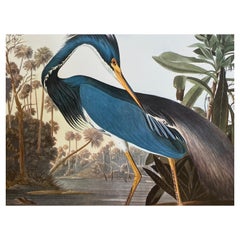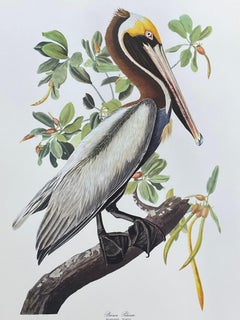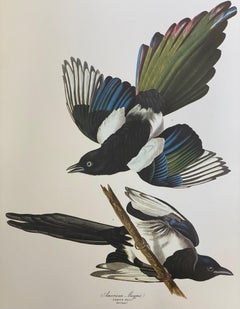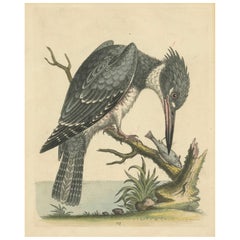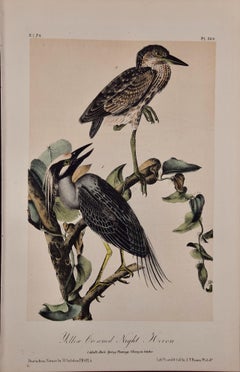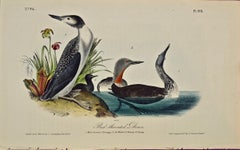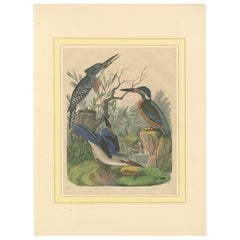Items Similar to Large Classical Bird Color Print after John James Audubon - Belted Kingfisher
Want more images or videos?
Request additional images or videos from the seller
1 of 9
Large Classical Bird Color Print after John James Audubon - Belted Kingfisher20th century
20th century
$126.85
$181.2130% Off
£94.50
£13530% Off
€109.14
€155.9130% Off
CA$178.01
CA$254.3130% Off
A$194.11
A$277.3030% Off
CHF 100.89
CHF 144.1230% Off
MX$2,323.73
MX$3,319.6130% Off
NOK 1,279.66
NOK 1,828.0830% Off
SEK 1,198.64
SEK 1,712.3430% Off
DKK 815.11
DKK 1,164.4430% Off
About the Item
Classical Bird print,
after John James Audubon,
printed by Harry N. Abrams, Publishers, New York
unframed, 17 x 14 inches color print on paper
condition: very good
provenance: from a private collector here in the UK.
FREE SHIPPING WORLDWIDE
A very beautiful color print after the original series by John James Audubon, 'Birds of America'. The work will make wonderful interior decoration for many different themes of interiors - either on its own - or perhaps part of a gallery wall presentation. We have several other bird prints available from this series - so please view our other items for sale.
- Creation Year:20th century
- Dimensions:Height: 17 in (43.18 cm)Width: 14 in (35.56 cm)
- Movement & Style:
- After:After John James Audubon
- Period:
- Condition:
- Gallery Location:Cirencester, GB
- Reference Number:1stDibs: LU50939652912
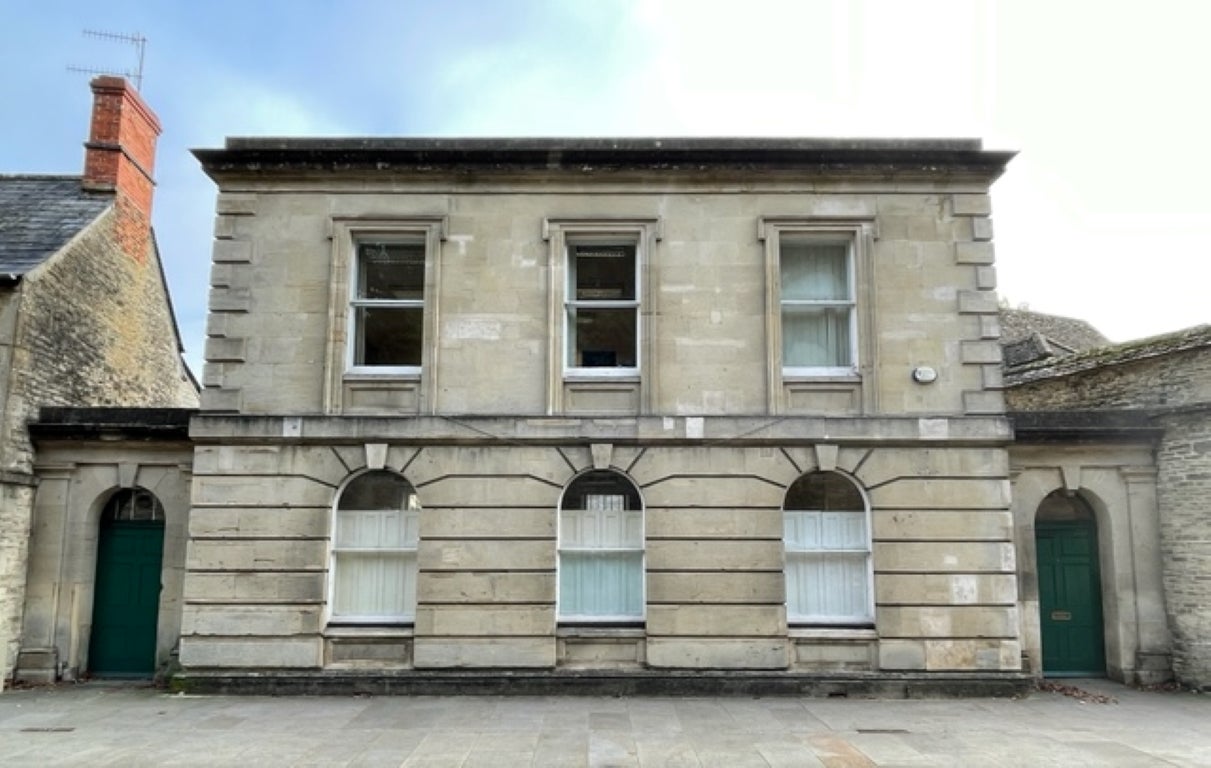
About the Seller
5.0
Platinum Seller
Premium sellers with a 4.7+ rating and 24-hour response times
Established in 1989
1stDibs seller since 2016
4,948 sales on 1stDibs
Typical response time: 1 hour
- ShippingRetrieving quote...Shipping from: Cirencester, United Kingdom
- Return Policy
More From This Seller
View AllLarge Classical Bird Color Print after John James Audubon, Belted Kingfisher
Located in Cirencester, Gloucestershire
Classical Bird print,
after John James Audubon,
printed by Harry N. Abrams, Publishers, New York
unframed, 17 x 14 inches color print on paper
condition: very good
provenance: from...
Category
20th Century Victorian Animal Prints
Materials
Acrylic
Large Classical Bird Color Print After John James Audubon, Louisiana Heron
Located in Cirencester, Gloucestershire
Classical Bird print,
after John James Audubon,
printed by Harry N. Abrams, Publishers, New York
unframed, 17 x 14 inches color print on paper
Condition: very good
Provenance: from...
Category
20th Century Victorian Animal Prints
Materials
Acrylic
$126 Sale Price
30% Off
Large Classical Bird Color Print after John James Audubon - Broad Winged Hawk
By After John James Audubon
Located in Cirencester, Gloucestershire
Classical Bird print,
after John James Audubon,
printed by Harry N. Abrams, Publishers, New York
unframed, 17 x 14 inches color print on paper
condition: very good
provenance: from...
Category
20th Century Victorian Animal Prints
Materials
Color
Large Classical Bird Color Print after John James Audubon - American Magpie
By After John James Audubon
Located in Cirencester, Gloucestershire
Classical Bird print,
after John James Audubon,
printed by Harry N. Abrams, Publishers, New York
unframed, 17 x 14 inches color print on paper
condition: very good
provenance: from...
Category
20th Century Victorian Animal Prints
Materials
Color
Large Classical Bird Color Print after John James Audubon - Summer or Woodduck
By After John James Audubon
Located in Cirencester, Gloucestershire
Classical Bird print,
after John James Audubon,
printed by Harry N. Abrams, Publishers, New York
unframed, 17 x 14 inches color print on paper
condition: very good
provenance: from...
Category
20th Century Victorian Animal Prints
Materials
Color
Large Classical Bird Color Print After John James Audubon, American Magpie
Located in Cirencester, Gloucestershire
Classical bird print,
after John James Audubon,
printed by Harry N. Abrams, Publishers, New York
unframed, 17 x 14 inches color print on paper
condition: very good
provenance: from...
Category
20th Century Victorian Animal Prints
Materials
Acrylic
$126 Sale Price
30% Off
You May Also Like
Majestic Hunter: The American Belted Kingfisher in Its Natural Habitat, 1749
Located in Langweer, NL
Original hand-colored antique bird print showing an American Kingfisher from the book "A Natural History of Uncommon Birds" (1743-1751) by George Edwards.
This hand-colored engraving showcases the bird perched on a branch, holding a fish in its beak.
The kingfisher is characterized by its distinctive plumage, with a slate-blue back and wings, a speckled tail, and a prominent crest on its head. Its body is white underneath with some pinkish hues near the breast. The bird's sharp beak is shown spearing a fish, emphasizing its hunting prowess. The surrounding environment includes a simple background with water and vegetation, highlighting the bird's natural habitat. This illustration is part of an increasingly rare and treasured collection of natural history artwork from the 18th century.
George Edwards (1694–1773) was an English naturalist and ornithologist who is often referred to as the "father of British ornithology." His most famous work, "A Natural History of Uncommon Birds" (1743-1751), and its continuation "Gleanings of Natural History" (1758-1764), contain detailed illustrations and descriptions of many bird species, many of which were little known or newly discovered at the time. Edwards' work is highly regarded for its accuracy, artistry, and contribution to the field of ornithology.
About George Edwards:
1. **Early Life and Career**:
- Born in Stratford, Essex, Edwards was apprenticed to a tradesman in London. However, he developed an interest in natural history and began studying birds, insects, and other animals.
- He spent some time traveling in Europe, studying various collections of natural history specimens.
2. **Publications**:
- **"A Natural History of Uncommon Birds" (1743-1751)**: This work is a collection of 210 hand-colored engravings of birds. It is known for its meticulous attention to detail and accuracy in depicting bird species.
- **"Gleanings of Natural History" (1758-1764)**: This series continued the work started in "A Natural History of Uncommon Birds" and included additional birds as well as other animals.
- His publications also included detailed observations and descriptions, making them valuable not only for their artistic merit but also for their scientific content.
3. **Artistic and Scientific Contributions**:
- Edwards was known for his ability to combine artistic skill with scientific precision. His illustrations often depicted birds in lifelike poses and settings, showing their natural behaviors.
- He collaborated with and was influenced by other naturalists and illustrators of his time, such as Carl Linnaeus and Mark Catesby.
- Edwards' works were used by Linnaeus in the development of his system of taxonomy.
4. **Legacy**:
- George Edwards' contributions to ornithology and natural history have had a lasting impact. His detailed and accurate illustrations helped to advance the study of birds and influenced subsequent generations of naturalists and artists.
- His books remain highly prized by collectors and are considered important historical documents in the field of natural history.
### "A Natural History of Uncommon Birds" and Its Importance:
- **Illustrations**: Each illustration in Edwards' work was carefully hand-colored, and the engravings were often accompanied by descriptive text that included observations about the birds' habitats, behaviors, and physical characteristics.
- **Scientific Accuracy**: Edwards took great care to ensure the accuracy of his depictions, often working from specimens he had observed firsthand.
- **Influence**: The work was well-received in its time and remains a significant reference for ornithologists and historians. It contributed to a greater understanding and appreciation of bird species from around the world.
Overall, George Edwards' work represents a critical intersection of art and science during the Enlightenment period, capturing the beauty and diversity of the natural world while contributing to the scientific knowledge of his time.
-------------
The bird depicted is a Belted Kingfisher...
Category
Antique 1740s Prints
Materials
Paper
$331 Sale Price
20% Off
Night Heron Birds: An Original 19th C. Audubon Hand-colored Bird Lithograph
By John James Audubon
Located in Alamo, CA
This is an original John James Audubon hand-colored lithograph entitled "Yellow Crowned Night Heron, 1. Adult Male Spring Plumage, 2. Young in October", No. 73, Plate 364 from Audubo...
Category
Late 19th Century Naturalistic Animal Prints
Materials
Lithograph
Red-throated Diver Bird: Original First Edition Audubon Hand-colored Lithograph
By John James Audubon
Located in Alamo, CA
This is an original rare and extremely collectible first octavo edition John James Audubon hand colored royal octavo lithograph entitled "Red-throated Diver", No. 96, Plate 478, from...
Category
Mid-19th Century Naturalistic Animal Prints
Materials
Lithograph
Hand-Coloured Lithograph of Kingfishers in Serenity: An 1852 Riverside Study
Located in Langweer, NL
Title: "Kingfishers in Serenity: An 1863 Riverside Study"
Description: This enchanting print, titled "Kingfishers in Serenity," is a stunning piece from the "Book of Worlds," publis...
Category
Antique 1850s Prints
Materials
Paper
After J.J. Audubon, Color Photo Lithograph Reprint Belted Kingsfisher
By John James Audubon
Located in Bridgeport, CT
The original engraved and printed by Havell. This lithograph reprint is most likely from one of several large format limited editions on fine white paper.
Handsomely presented matte...
Category
20th Century Country Prints
Materials
Acrylic, Wood, Paper
Florida Cormorant /// John James Audubon Ornithology Bird Art Natural History
By John James Audubon
Located in Saint Augustine, FL
Artist: John James Audubon (American, 1785-1851)
Title: "Florida Cormorant" (Plate 417, No. 84)
Portfolio: The Birds of America, First Royal Octavo Edition
Year: 1840-1844
Medium: Original Hand-Colored Lithograph on wove paper
Limited edition: approx. 1,200
Printer: John T. Bowen, Philadelphia, PA
Publisher: John James Audubon and J.B. Chevalier, New York, NY and Philadelphia, PA
Sheet size: 6.5" x 10.44"
Image size: 3.75" x 6.25"
Condition: Some minor discoloration upper center in margin. In excellent condition with strong colors
Notes:
Provenance: private collection - Cleveland, OH. Lithography and hand-coloring by American artist John T. Bowen (1801-c.1856). Comes from Audubon's famous seven volume portfolio "The Birds of America", First Royal Octavo Edition (1840-1844), which consists of 500 hand-colored lithographs.
Based on a composition painted in the Florida Keys on April 26, 1832, Audubon's forty-seventh birthday.
The double-crested cormorant (Nannopterum auritum) is a member of the cormorant family of water birds. It is found near rivers and lakes and in coastal areas and is widely distributed across North America, from the Aleutian Islands in Alaska down to Florida and Mexico. Measuring 70–90 cm (28–35 in) in length, it is entirely black except for a bare patch of orange-yellow facial skin and some extra plumage that it exhibits in the breeding season when it grows a double crest in which black feathers are mingled with white. Five subspecies are recognized. It mainly eats fish and hunts by swimming and diving. Its feathers, like all cormorants, are not waterproof, and it must dry them out after spending time in the water. Once threatened by the use of DDT, the numbers of this bird have increased markedly in recent years.
To make 'The Birds of America' more affordable and widely available, in 1839 John James Audubon began the first octavo edition, a smaller version of the folio which was printed and hand-colored by J. T. Bowen in Philadelphia. Employing a new invention, the camera lucida, the images were reduced in size, rendered in intermediate drawings by John James Audubon and his son John Woodhouse, and then drawn onto lithographic stones. These miniatures exhibit a remarkable amount of attention to quality and detail, as well as a meticulous fidelity to the larger works. Some compositional changes were made in order to accommodate the smaller format. Like the Havell edition, John James Audubon’s first...
Category
1840s Victorian Animal Prints
Materials
Watercolor, Lithograph
More Ways To Browse
Kingfisher Bird
Gifford John
Giraffe Etching
Harrison Begay
Henry Moore Zoo
I Destroyed The Tennis Ball
Irish Water Spaniel
Jack Coughlin
John Gould Ducks
Keith Haring Secret Pastures
Kenojuak Ashevak
Le Singe Et Le Leopard
Leon Danchin On Sale
Louis Prang Chromolithograph
Man O War Horse
Manetti Saverio
Natural History Museum Vintage Prints
Penguin Lithograph
